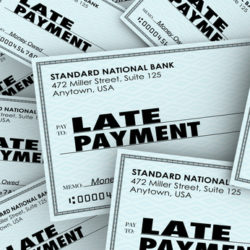
Failure to comply with the tax law could end up in tax penalties. Taxpayers could face several penalties for non-compliance of the Federal, State, County and City tax requirements plus interest charged in addition to outstanding taxes assessed; which could be a minor tax surprise or a major tax nightmare. However, rest at ease, unless you conducted criminal acts or received a criminal tax penalty notice, you are not going to jail for unintentionally unpaid taxes.
What is a tax penalty?
A tax penalty is a punitive measure imposed to a taxpayer by either the Federal, State, or Local tax law authorities, for failure to comply with the tax requirements on time. The tax penalty usually applies to failure to file income tax returns, information returns, or a failure to pay taxes on time. The tax penalties varies from civil to criminal penalties, and of course can be very costly at about 5% per month for the first 5 months, unless criminal; obviously, the best option for you is to avoid them at all by filing and paying your taxes on time
The IRS has a list of tax penalties, and the severity of the penalty would depend on the failure and the reason why the taxpayer failed to act properly. Generally the penalties are imposed in monetary value.
A few of the most common tax penalties reasons could be:
- Failure to pay and file by the due date,
- Paying under the amount owed,
- Understatement on your tax return,
- Failure to report transactions in the tax return,
- File an erroneous claim for refund or credit,
- Providing fraudulent information on your return.
- Not having health insurance,
What can I do to avoid tax penalties?
- File your taxes on or before the due date,
- Follow the tax rules to make deductions for the year you are filling, and
- Provide accurate information in your tax return.
- Use an experienced tax preparer and a good tax software to prepare an accurate tax return
- E-File your tax return to check for errors also…
Some penalties are calculated based on a percentage of the entire amount of the return; generally a quarterly floating federal interest rate is charged and added per each month the bill is late, starting from the original due date of the tax due being penalized. Keep in mind that the federal tax authority is independent from the state and local, and you need to comply with all of them. If you are not sure how to minimize tax penalties, call our offices at Rosillo & Associates, PA, we want to save our client penalties, interest and stress.







